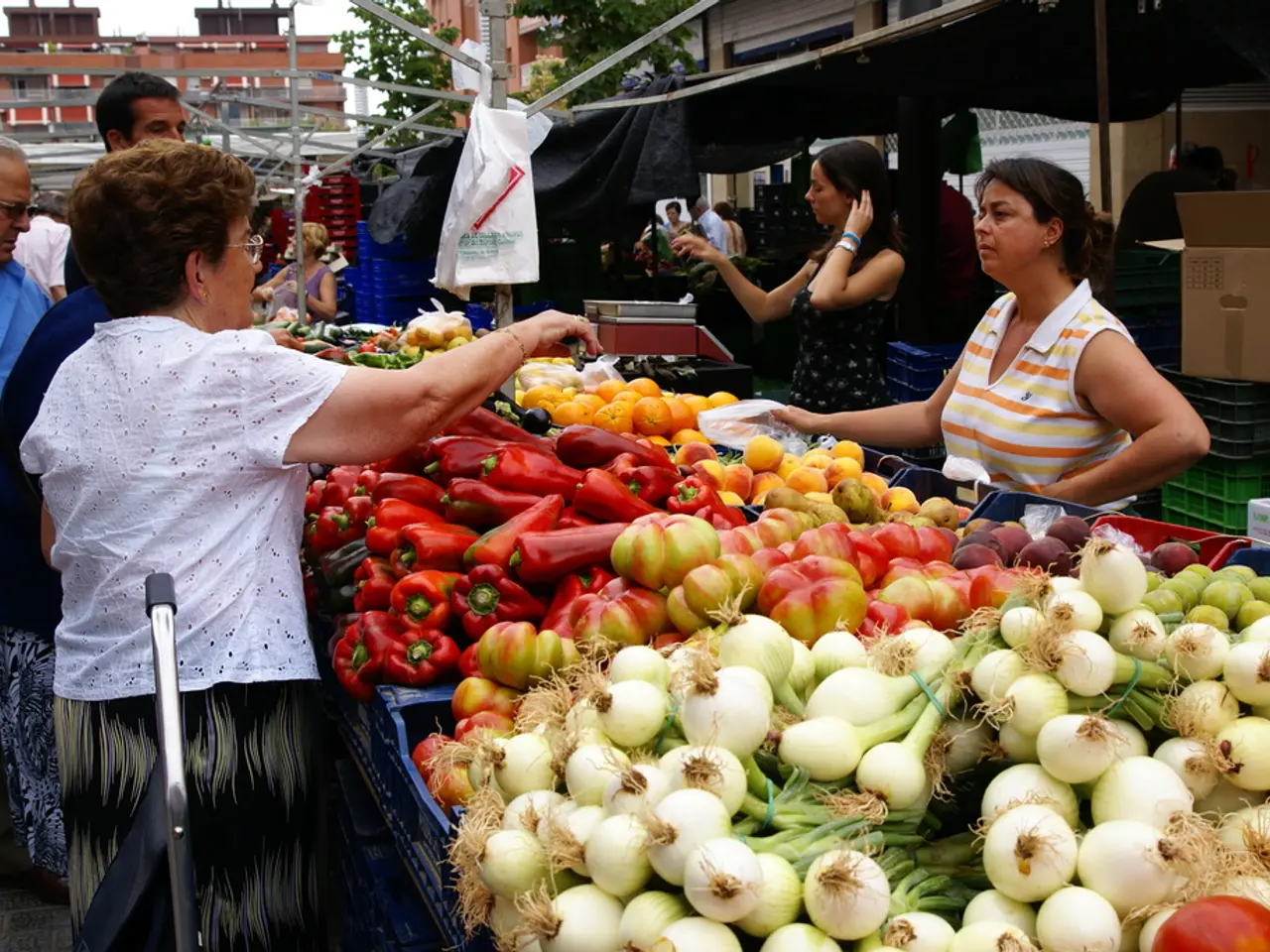World Leaders Gather to Discuss and Address the Difficult Questions Surrounding Plastic Waste Issues
The urgent need for a unified global response to the rising plastic production is becoming increasingly apparent. From just 2 million tonnes in 1950, the production has ballooned to 475 million tonnes in 2022, a staggering increase that underscores the urgency of the situation [1].
The oceans are bearing the brunt of this plastic proliferation. Scientific assessments indicate nearly 200 trillion pieces of plastic littering the oceans, with estimates suggesting this figure could triple without significant intervention [2]. This marine debris poses a significant threat to various marine species, with many mistaking plastic for food, leading to health complications and fatalities.
As the world grapples with this crisis, the upcoming discussions are focusing on establishing targets for reducing single-use plastic production and creating universal standards for plastic product design [3]. A legally binding treaty to reduce plastic waste and harmful substances associated with certain plastics was agreed upon in 2022, but after two years of negotiations, no conclusive treaty has been yielded yet [1].
The aim of the ongoing United Nations conference in Geneva is to forge a consensus on combating plastic pollution. However, the negotiation process is at a critical and difficult stage. The previous round in late 2024 failed to produce an agreement due to lobbying by fossil fuel companies and some major plastic-producing nations, which slowed progress [1].
As of early August 2025, civil society organizations are reporting that negotiations are not on track to deliver a treaty strong enough to protect people and the environment. They call on governments to fix the process and fulfill their promises, warning that stalling or weakening the treaty risks failure to address the urgency of plastic pollution [4].
Key issues complicating the talks include resistance by a group of countries that want the treaty to focus only on recycling and consumption, opposing measures to curb plastic production or restrict specific harmful substances. This disagreement contrasts with calls from other countries and environmental advocates for a comprehensive treaty that also limits plastic production and phases out products harmful to health and ecosystems [5].
The European Union is actively involved and pushing for an ambitious treaty that addresses the entire plastic lifecycle, including phasing out hazardous plastics.
Individuals can also contribute to the fight against plastic pollution. Utilizing reusable containers for takeout, avoiding single-use plastics, and bringing reusable bags for grocery shopping are practical steps that can help reduce personal plastic footprints.
The latest round of talks, known as INC-5.2, is taking place from August 5 to 14, 2025, in Geneva, with over 145 countries participating to try to finalize the Global Plastics Treaty [1][2]. The outcome depends on overcoming opposition from some major states and industry interests to create a legally binding framework that comprehensively tackles plastic pollution worldwide [1][2][4][5].
References: [1] BBC News. (2023, March 28). UN talks on plastic pollution delayed until 2025. BBC. https://www.bbc.com/news/science-environment-64879983 [2] The Guardian. (2023, March 28). Global Plastics Treaty: UN talks on plastic pollution delayed until 2025. The Guardian. https://www.theguardian.com/environment/2023/mar/28/global-plastics-treaty-un-talks-on-plastic-pollution-delayed-until-2025 [3] European Commission. (2023, July 14). The EU's commitment to ending plastic pollution. European Commission. https://ec.europa.eu/info/strategy/priorities-2019-2024/europe-green-deal/circular-economy/eu-commitment-ending-plastic-pollution_en [4] Center for International Environmental Law. (2025, August 3). Global Plastics Treaty Negotiations Fall Short of Meeting Urgency of Plastic Pollution Crisis. Center for International Environmental Law. https://www.ciel.org/press/global-plastics-treaty-negotiations-fall-short-of-meeting-urgency-of-plastic-pollution-crisis/ [5] Greenpeace. (2023, September 20). Plastic pollution: What's at stake in the Global Plastics Treaty negotiations. Greenpeace. https://www.greenpeace.org/international/story/50698/plastic-pollution-whats-at-stake-in-the-global-plastics-treaty-negotiations/
- The increasing concern over climate-change has led to discussions about policy-and-legislation that focus on environmental-science, particularly in relation to plastic production.
- The upcoming United Nations conference in Geneva aims to forge a consensus on combating plastic pollution, but the negotiations are at a critical and difficult stage, with disagreements over the scope of the treaty, including limits on plastic production.
- As individuals, we can contribute to the fight against plastic pollution by adopting practices such as using reusable containers, avoiding single-use plastics, and bringing reusable bags for grocery shopping.





